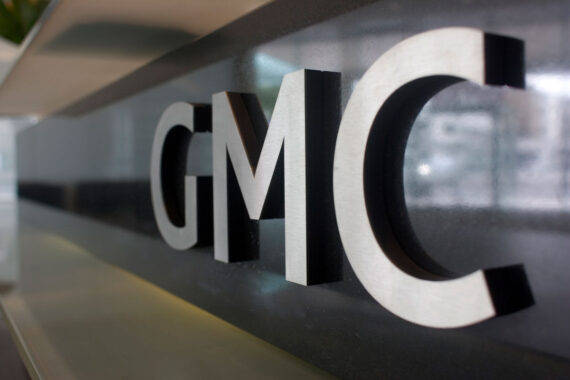A group of doctors seeking a legal challenge against the GMC over physician associate (PA) regulation has raised nearly £80,000 – but they say they will need £500,000.
Earlier this year, Anaesthetists United – a group representing anaesthetists of all grades – said it was commencing a legal case against the GMC as it believes the regulation process for PAs and anaesthetist associates (AAs) is ‘blurring the distinction’ between doctors and associate professions.
It wants to achieve ‘clear and enforceable guidance’ from the GMC on the ‘privileges of members’ admitted to associate practice, ‘defining what they can and cannot do’.
The group’s lawyer’s have now written to the GMC to state an intention to seek a judicial review. The letter, which the GMC legally must respond to within two weeks, argues that the regulator has ‘acted unlawfully’ during the regulation process.
However, following this, there is ‘a lot more preparation to do’ before the case can go to court, Anaesthetists United said in an update. According to the group, the costs of the challenge are ‘considerable’ and they will need £500,000 to bring the case forward.
The group said: ‘We hear of PAs in general practice working unsupervised. We hear patients saying they were seen by an unsupervised associate, when they thought they were seeing a doctor. AA and PA regulation was introduced because of universal concerns about the lack of boundaries on their roles and accountability.
‘It was expected, and made clear in multiple consultation processes, that the GMC was supposed to be setting national standards to change all this. This was the justification for statutory regulation. But astonishingly the GMC has failed to set the standards that are most needed.’
The group said the legal arguments ‘are complicated’, and getting a ‘thorough understanding of the history and the multitude of organisations involved’ has been difficult for their legal team.
‘Thanks to donations so far we now feel they have a solid measure and understanding of the case, but the ongoing court costs are going to be significant,’ it added.
The group estimated that the work undertaken so far will cost over £50,000 and the work necessary to get the case issued and moving forward in the judicial review process will bring the costs to £94,000.
‘After that, our advice has been that we will need at least a further £400k unless we get a Cost Capping Order capping both the costs we can recover if we win and those the GMC can recover if we don’t,’ they added.
A GMC spokesperson said: ‘We have received correspondence from Anaesthetists United Ltd’s lawyers informing us of their intention to seek a judicial review. We are considering their claims and will respond in due course.’
The BMA is also launching a judicial review claim against the GMC over its use of the term ‘medical professionals’ in its materials to ‘describe all of its future registrants’, including both doctors and associates.
The union is arguing that the term ‘should only ever be used to refer to qualified doctors’.
However, the GMC rejected the BMA’s plans for legal action on PA regulation, claiming the grounds for a judicial review are ‘not even arguable’.
Earlier this year, Pulse reported that the DAUK was also considering a legal challenge of the PA regulation plans.
Pulse’s recent investigation into the rise of physician associates in general practice looked at GP concerns about their clinical responsibilities, and particularly whether they are safe to see undifferentiated patients.
This week the BMA said that GP supervision of PAs must take place immediately after each patient and before they leave the surgery.
Pulse October survey
Take our July 2025 survey to potentially win £1.000 worth of tokens













Because thats how much the lawyers want
What I see as GP is that nearly all secondary “care specialists” have happily reduced themselves to role of technicians. If I refer patients, I no longer receive consultant’s opinion on the cause of patients symptoms. I am advised that they don’t have a cancer of the segment of the body that the relevant technical assistant/consultant has investigated.
My point is that I can supervise patient outcomes after such encounters with secondary “care”, but not directly or immediately. And only those that concern patients of my practice, and if I am informed.
My PA receives all support and supervision that is needed, but I fear for patients who receive care from secondary lot all over the country. Like one of my patients said to me, calling the practice from acute medical ward: “tell me if I am having this heart attack or not? They have done lots of tests but there’s no one who can answer any questions here”
Anaesthetists United have rightly raised concerns about PAs, even though PA Anaesthetic practice tends to be confined to planned elective procedures, and closely supervised. Seeing undifferentiated patients in primary care, with “light touch” supervision is probably equally hazardous. PAs undoubtedly need to be regulated, but not by the GMC.